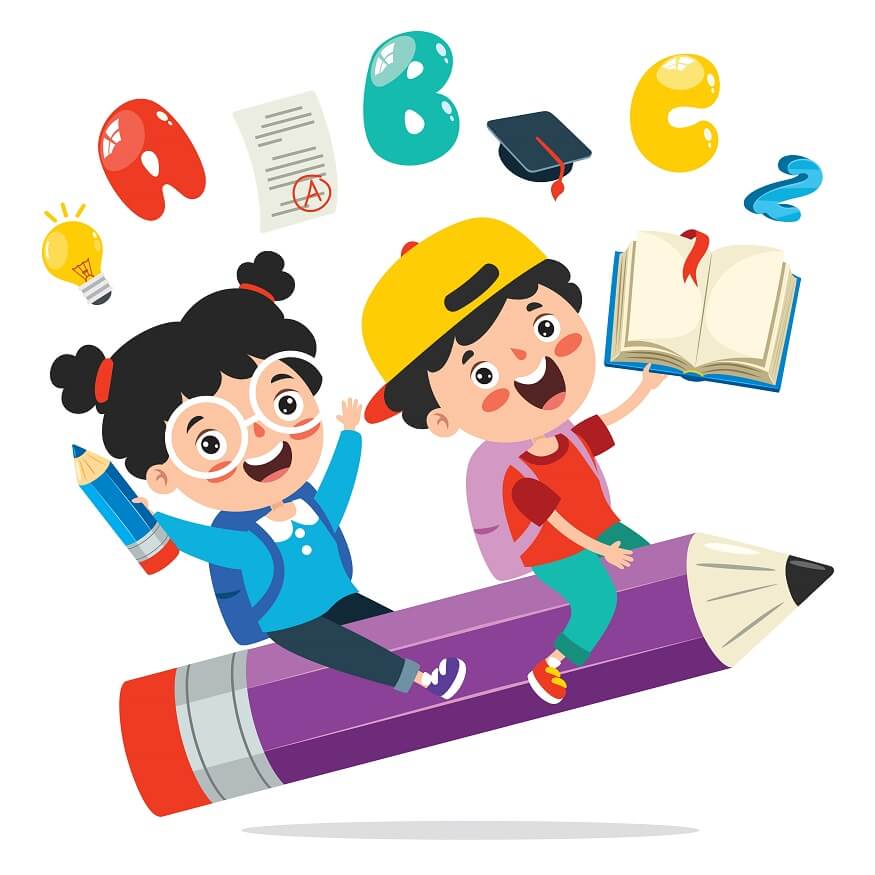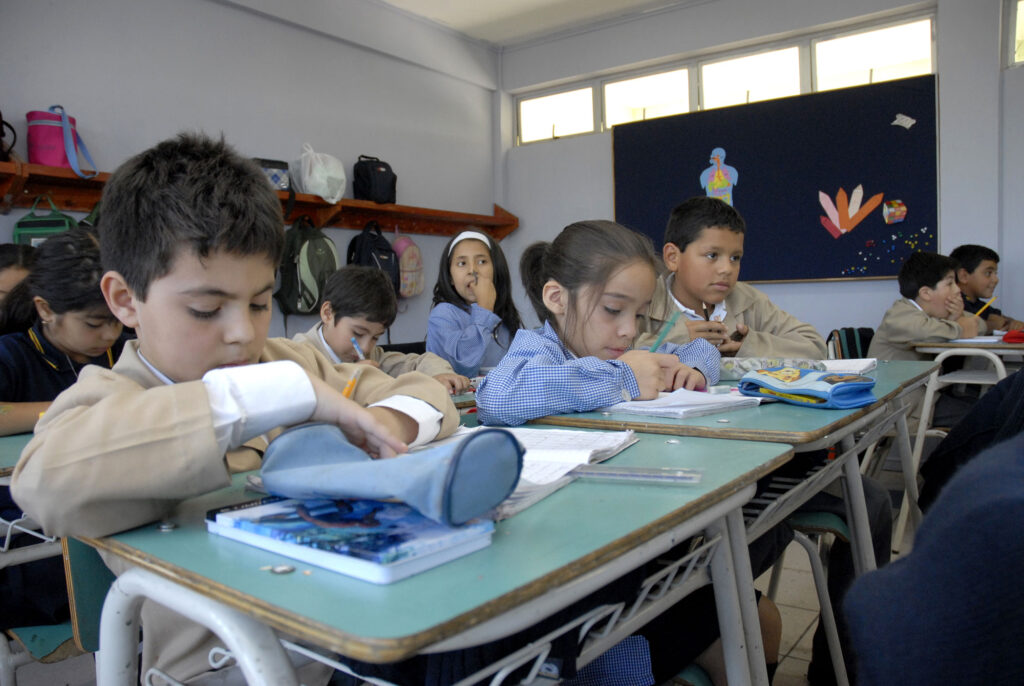Primary education, also known as elementary education, is the foundational stage of formal education, typically for children aged 6 to 11. It’s the period where children develop fundamental literacy and numeracy skills, build a strong academic foundation, and learn essential social and emotional skills. In India, prime education is divided into two stages: primary stage (grades 1-5) and upper primary stage (grades 6-8).

Key aspects of primary education:
- Foundational learning:It focuses on developing basic literacy (reading and writing) and numeracy (mathematics) skills.
- Social and emotional development:Children learn to interact with peers, develop communication skills, and learn about social norms and values.
- Building a strong academic base:Prime education lays the groundwork for future learning in secondary and higher education.
- Moral development:It also emphasizes developing good habits, respect for authority, and a sense of responsibility.
- Aesthetic and cooperative spirit:Prime education aims to instill a love for art, music, and a sense of teamwork.
- Age-appropriate learning:The curriculum is designed to be suitable for the developmental stage of young children.
- Importance of Universal Primary Education (UPE):UPE is a global goal to ensure every child has access to quality primary education, as it’s a fundamental right and a key factor in reducing disparities and promoting social justice.
In India, primary education plays a crucial role in:
- Reducing inequalities:It helps level the playing field for children from different backgrounds, providing them with a foundation for future opportunities.
- Preparing children for life:It equips them with the skills and knowledge they need to navigate everyday life and participate actively in society.
- Promoting lifelong learning:It fosters a love for learning and encourages curiosity, which is essential for continuous personal and professional development.
Primary Education: Foundation of Lifelong Learning
Primary education serves as the cornerstone of a child’s academic journey, laying the groundwork for future learning and personal development. In India, this stage encompasses two levels: Lower Primary (Classes I–V) and Upper Primary (Classes VI–VIII), catering to children aged 6 to 14. The Right of Children to Free and Compulsory Education Act, 2009, mandates free education for all children in this age group, aiming to ensure universal access to quality education.
Importance of Primary Education
1. Foundational Skills Development
Primary education equips children with essential literacy and numeracy skills, enabling them to read, write, and perform basic arithmetic. These foundational skills are crucial for further academic pursuits and daily life. Moreover, primary education fosters cognitive development, enhancing memory, concentration, and intellectual capabilities .
2. Holistic Growth
Beyond academics, primary education promotes emotional, social, and physical development. It provides a safe environment for emotional expression and self-discovery, laying the groundwork for healthy emotional development. Co-curricular activities such as sports, arts, and cultural programs encourage creativity, critical thinking, and problem-solving skills .
3. Socialization and Communication
Through collaborative activities and group projects, primary education fosters social skills and effective communication. Children learn to interact with peers, resolve conflicts, and work as a team, preparing them for active participation in society .
4. Instilling Core Values
Primary education plays a vital role in shaping the values and attitudes of children. It instills moral and ethical values such as respect, empathy, honesty, and responsibility, guiding children to become compassionate and socially conscious individuals .

Objectives of Primary Education
- Universal Access: Ensure that every child has access to free and quality education, irrespective of socio-economic background.
- Skill Development: Impart basic literacy and numeracy skills, along with critical thinking and problem-solving abilities.
- Holistic Development: Promote emotional, social, and physical growth through a balanced curriculum.
- Value Education: Instill moral and ethical values, fostering responsible citizenship.
- Gender Equality: Bridge the gender gap in education, ensuring equal opportunities for all children .
Challenges in Primary Education
Despite significant progress, several challenges hinder the effectiveness of primary education:
- Infrastructure Deficits: Many schools lack basic facilities such as clean drinking water, functional toilets, and adequate classrooms, affecting the learning environment.
- Teacher Shortages: A shortage of trained and motivated teachers, coupled with high student-to-teacher ratios, impedes effective teaching and learning .
- Digital Divide: Limited access to technology and the internet restricts opportunities for digital learning, especially in rural and underserved areas .
- Socio-Economic Barriers: Economic hardships force children to work instead of attending school, and cultural norms may prioritize boys’ education over girls’, leading to disparities in enrollment and retention .
Innovations in Primary Education
To address these challenges and enhance the quality of primary education, several innovative approaches have been implemented:
- Activity-Based Learning (ABL): This approach emphasizes hands-on activities, games, and storytelling to make learning engaging and meaningful. States like Tamil Nadu and Maharashtra have adopted ABL methods to foster creativity and critical thinking among young learners .
- Integration of Technology: Digital tools and platforms are being utilized to supplement traditional teaching methods. For instance, Kerala’s partnership with Navy Children School aims to enhance digital learning through AI and robotics labs, promoting STEM education from an early age .
- Cultural Revitalization: Rajasthan has introduced traditional topics like Surya Namaskar, Makar Sankranti, and blue pottery in primary school textbooks, integrating cultural heritage into the curriculum to foster a sense of identity and pride among students .
- Inclusive Education: Efforts are being made to create inclusive classrooms that cater to the diverse needs of students, including those with disabilities. This involves adapting teaching methods and materials to ensure equitable learning opportunities for all .

Conclusion
Primary education is not merely a stepping stone but the bedrock upon which a child’s future is built. It equips children with the necessary skills, values, and knowledge to navigate the complexities of the world. While challenges persist, ongoing reforms and innovations hold promise for transforming primary education into a more inclusive, engaging, and effective system. By investing in primary education, societies can pave the way for a brighter, more equitable future for all children.
Pingback: online courses in 2025